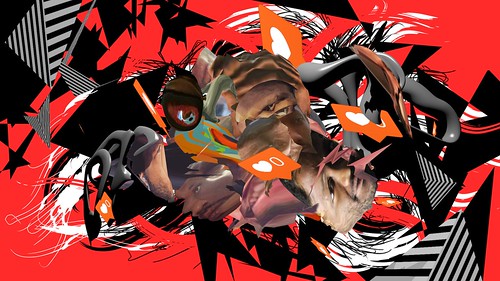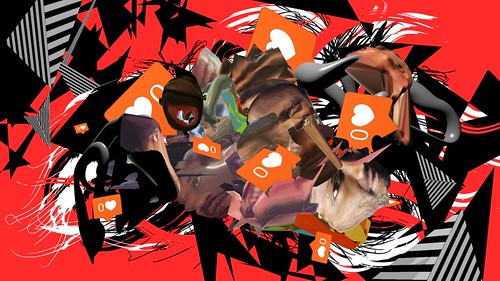Curated by Clark Buckner and Carla Gannis
Featuring: Alfredo Salazar-Caro, Alicia Escott, Antonio Roberts, Auriea Harvey, Bayeté Ross Smith, Caroline Sinders, Christina Corfield, Clareese Hill, Claudia Hart, Danielle Siembieda, Darrin Martin, David Bayus, Faith Holland, Faiyaz Jafri, Gabriel Barcia-Colombo, Genevieve Quick, Gretta Louw, Hank Willis Thomas, Jakob Kudsk Steensen, KJamel Mims AKA Jam No Peanut, James X Patterson, Jenifer Wofford, LaJuné McMillian, Laura Gillmore, Laura Hyunjee Kim, Laura Splan, Leila Weefur, Liss Lafleur, Lorna Mills, Lynn Marie Kirby, Mads Lynnerup, Maggie Roberts, Mark Amerika , Mark Klink, Martina Menengon, Mary Flanagan, Minoosh (Raheleh) Zomorodinia, Mohsen Hazrati, Molly Soda, Noth (Qinyuan) Liu, Penelope Umbrico, Porpentine Charity Heartscape, R. Luke DuBois, RaFia, Ranu Mukherjee, Rosa Menkman, Ruben Natal-San Miguel, Sean Capone, Shaghayegh Cyrous, shawné michaelain holloway, Sherie Weldon, Snow Yunxue Fu, Surabhi Saraf, Susan Silas, Tamiko Thiel, Tiare Ribeaux, Yuliya Lanina
As an outgrowth of Carla Gannis’ wwwunderkammer, Telematic Media Arts is pleased to present, The Archive to Come, an exhibition – both on-line and in the gallery – of short, moving-image works that address questions of loss, memorialization, crisis, and re-invention, through the lens of contemporary networked culture and digital media.
The crises we confront raise fundamental questions about what we value and want to preserve as we work to recover from their ravages and build for the future. How will we memorialize those whose lives have been lost? What could do justice to the fact that so many have died needlessly, as a result of government inaction and political maneuvering, or worse, as victims of racist terror and state violence? How can we redress the unequal distribution of suffering and work to dismantle systems of oppression? What histories demand to be foregrounded and what legacies should be left behind? What have we carried with us as we’ve withdrawn into isolation and emerged in protest? What are the sources of precariousness and resilience in our personal and collective constitutions? What kinds of work do we honor as essential? What do we need to preserve our sense of well-being? What novel modes being and relating have we developed to maintain our social connections? What do we hope for the future?
These are questions of the archive, which both founds and sustains the authority of discourses, institutions, and practices. They concern the construction of memory, knowledge, experience, and power; and they present themselves now, amidst these crises, as both problems and possibilities: revelations of the previously unconscious contradictions in our way of doing things, as well as opportunities to re-orient our attunement to the world.
Carla Gannis’ wwwunderkammer appeals to the 16th – Century “Cabinets of Curiosity” to consider the uncanny complications of grounded reality and virtual reality, nature and artifice, science and science fiction in contemporary digital culture, while building virtual worlds, founded upon de-colonizing, post-human, and feminist archives. The Archive to Come, accordingly, opens these concerns to consideration by a broad field of other artists, inviting them to construct archives of their own, to reflect upon the correlative issues of historical trauma and displacement, and to consider how the digitalization of memory has changed the experience of what we remember – indeed, memory and experience themselves?




